Hamilton vs Trump: The long history of political protest in the theatre
- Published
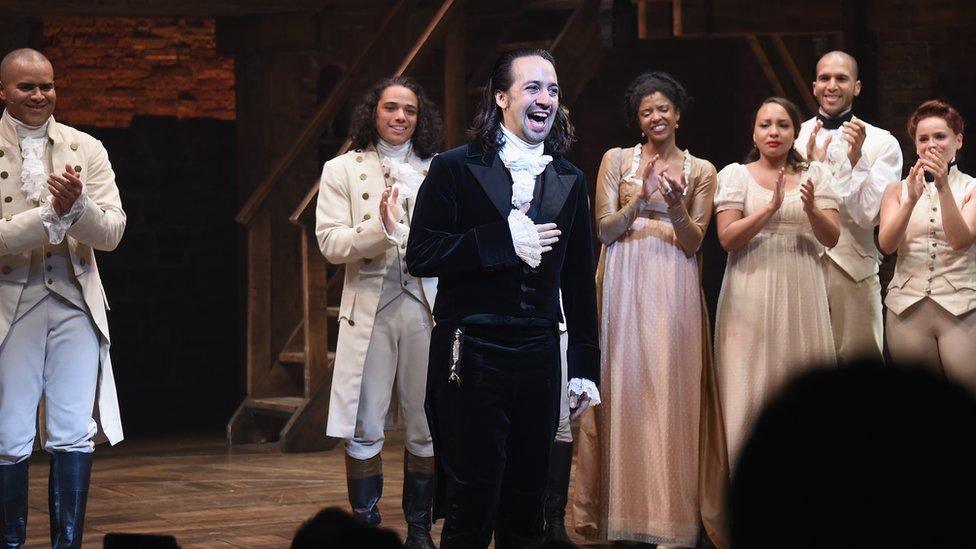
Was the cast of Broadway's Hamilton out of bounds or in alignment with history?
At a recent performance of Hamilton, the cast directly addressed Vice-President-elect Mike Pence in the audience. Journalist Lauren Everitt explores whether they were violating a social more or following a long tradition of political activism.
Hamilton, the musical, has long been a hot ticket, with shows sold out months in advance and scalpers selling passes for hundreds - if not thousands - of dollars.
Last week, it became a hot button, after actor Brandon Victor Dixon delivered a message from his colleagues to theatre-goer and Vice-President-elect Mike Pence.
"We, sir, are the diverse America who are alarmed and anxious that your new administration will not protect us," Dixon said.
The address brought quick condemnation from President-elect Donald Trump.
"The theater must always be a safe and special place," he tweeted. "The cast of Hamilton was very rude last night to a very good man, Mike Pence. Apologize!"
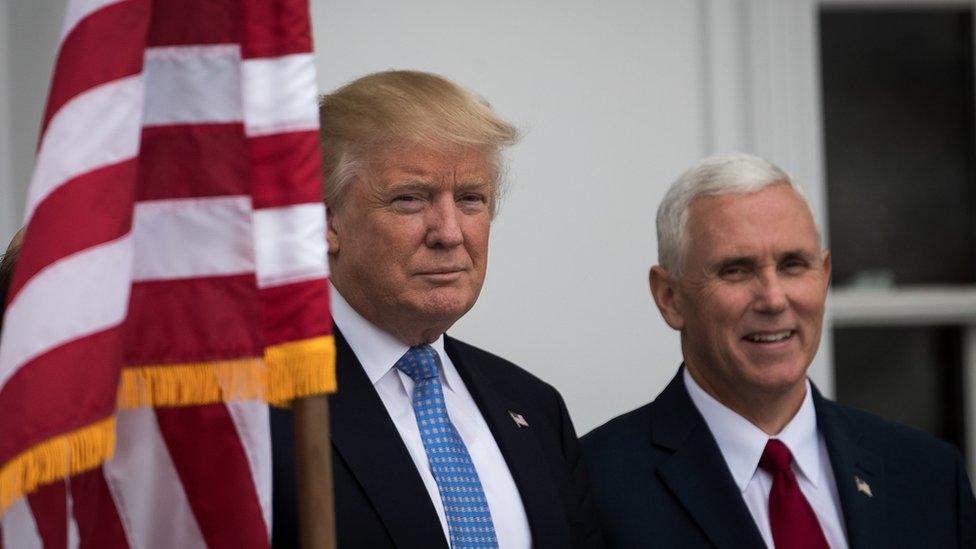
Trump and vice president-elect Mike Pence respond to questions about the Hamilton incident
But while calling out an audience member is highly unusual on Broadway, Peter Davis, a professor of theatre history at the University of Illinois at Urbana-Champaign, says the show's political message follows a 2,400-year-old convention.
"There's a long tradition of controversy in theatre … I just think it's interesting and kind of fun to see it happening again, and [Hamilton] can get away with it because it's such a popular, major show," Davis said.
He points out that the ancient Greek playwrights used comedy and drama to call out corrupt politicians. In one of the earliest known instances, Greek comic writer Aristophanes thumbed his nose at Athenian political elites in The Acharnians for their handling of the Peloponnesian War. The play was written in 425 BC.
The ancients weren't the only ones using theatre to deliver political messages. In America's oldest extant play, Androboros, the colonial governor of New York penned a biting satire about his political enemies in 1715, according to Davis, who wrote a book on the topic.
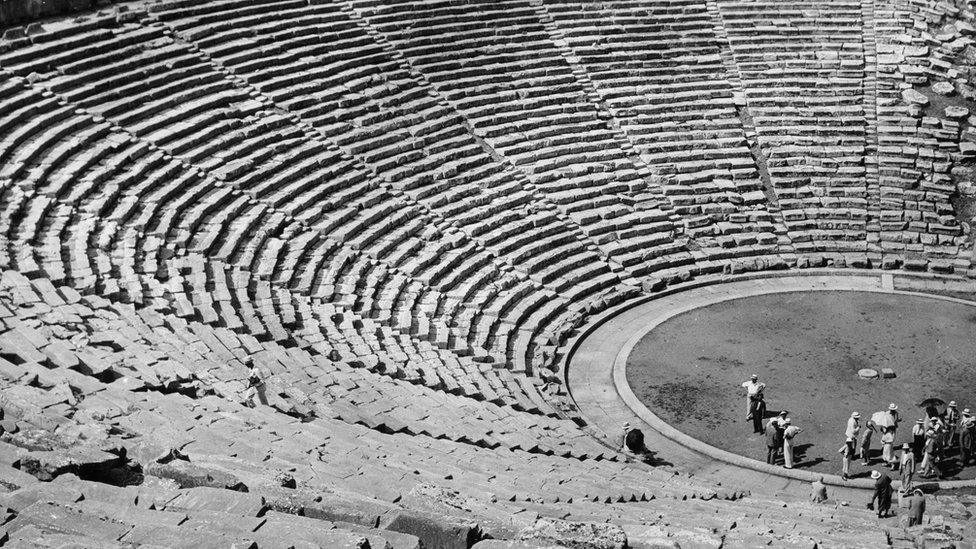
Political criticism was standard fare in the ancient Greek theatres
More modern examples include Broadway musical South Pacific, a World War II-era play about two biracial couples. The musical unapologetically confronted racism in the late 1940s, and the producers went so far as to threaten to boycott a theatre with segregated seating.
Two Georgia legislators tried to ban the play without success.
In 1968, the rock musical Hair premiered on Broadway. Its story of hippies searching for love, peace, and drugs offered a sharp counterpoint to the Vietnam War.
More than a decade later, Larry Kramer's The Normal Heart and Tony Kushner's Angels in America challenged President Ronald Reagan's silence on the Aids crisis, according to Kevin Wetmore, professor and chair of theatre arts at Loyola Marymount University.
When asked for other examples of politicised theatre, Wetmore ticks off a long list that spans geography and time.
"When has the theatre been not political? When has it been safe?" he asked. "Theatre was born in politics. It lives in politics."
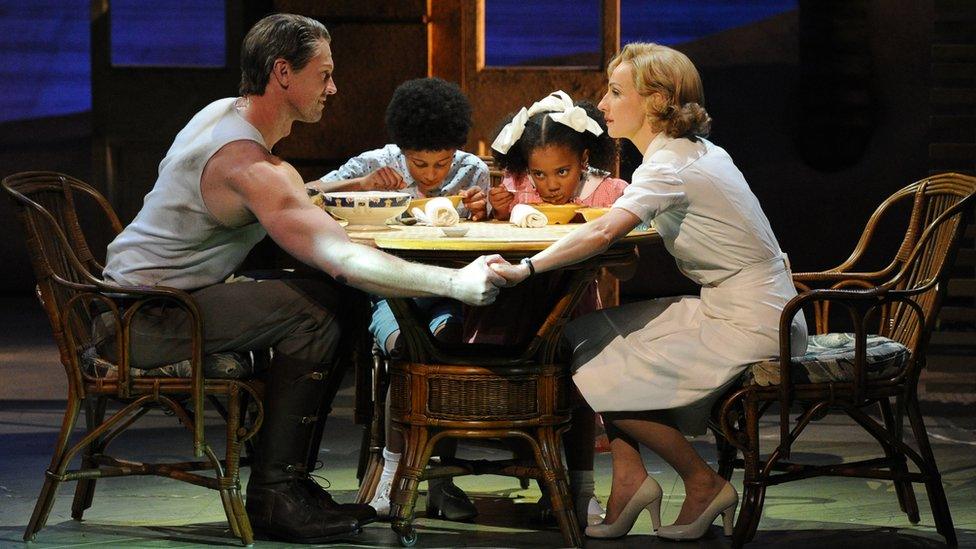
A 2012 production of South Pacific, which tackled the issue of racism
While few contest theatre's role in political discourse, Trump's view that it should be "safe" may be gaining ground.
Off-Broadway productions are known to challenge their audiences with tough political, social and moral questions, but some critics contend that mainstream theatre is softening its stance and offering easier-to-swallow shows.
This shift towards "safer" content is largely for commercial, not social, reasons, according to Jeffrey Eric Jenkins, vice president of the International Association of Theatre Critics.
Jenkins points out that while producers want to create art, they also have to appeal to a wide, general audience to bankroll expensive Broadway productions.
"History has taught us that breaking ground artistically does not often signal that you're going to be financially successful," he said.
This financial squeeze has led some Broadway producers to focus on less challenging and confrontational content.
Hamilton, the show Mr Pence attended, is widely regarded as the exception to this shift. The musical addresses immigration and diversity, among other issues.
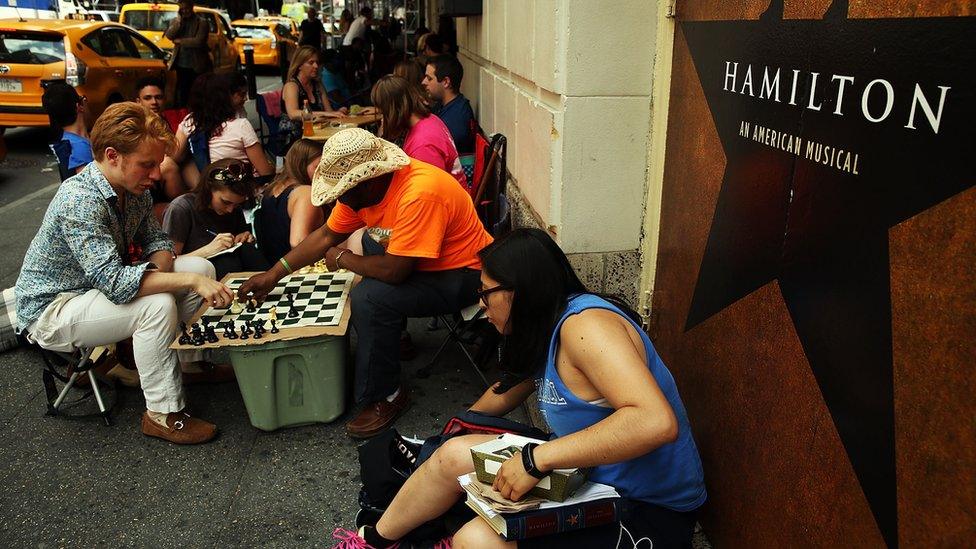
Hamilton fans have to camp out in order to score tickets in New York City
Hamilton occupies a unique space in the current Broadway scene because it's both challenging and popular, Jenkins said.
"It rewrites the narrative in so many different ways. That's part of the genius of it."
As Wetmore points out, the curtain-call speech "would not have been given had [Mr Pence] gone to Legally Blonde".
Critics are hopeful that Hamilton signals a move towards more challenging topics in the theatre.
For Wetmore, the shift can't come soon enough.
"Mr Trump has it wrong. When times are not safe, the theatre should not be either, and those of us who work in it need to speak out more than ever," he said.